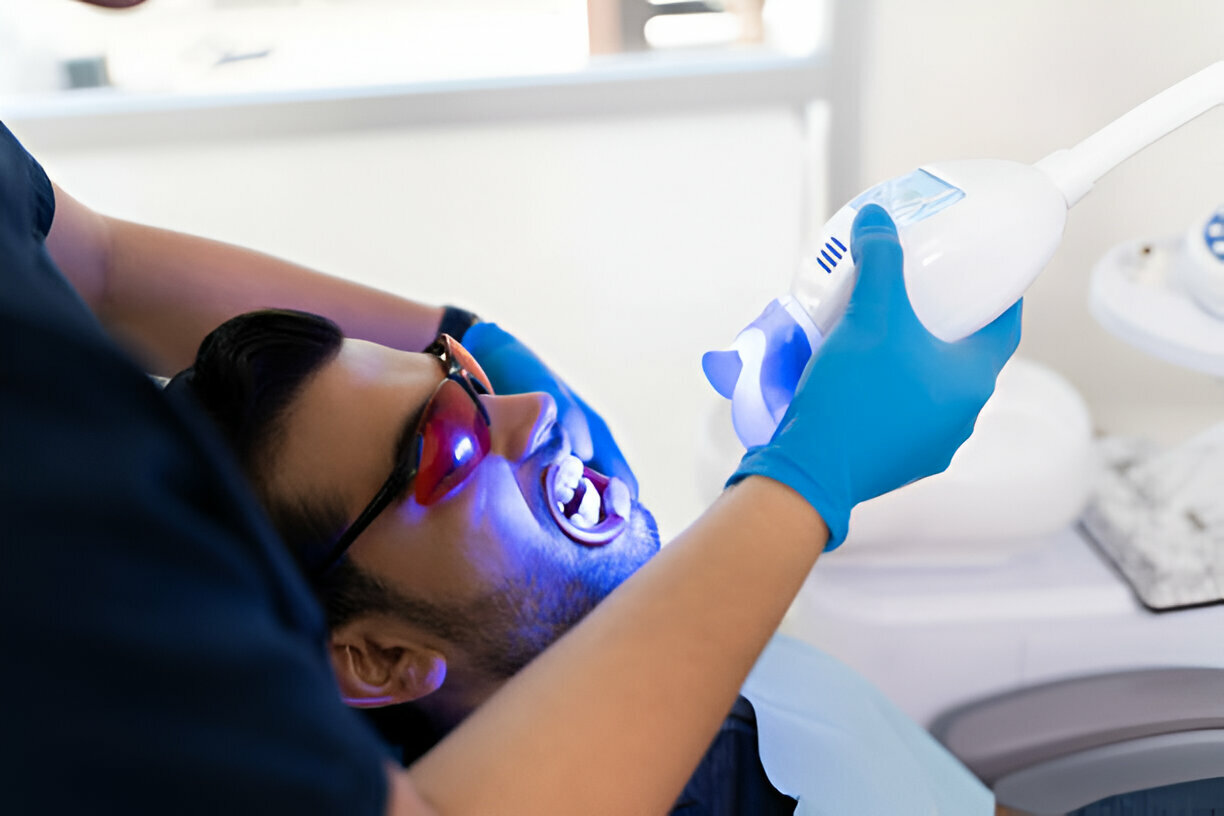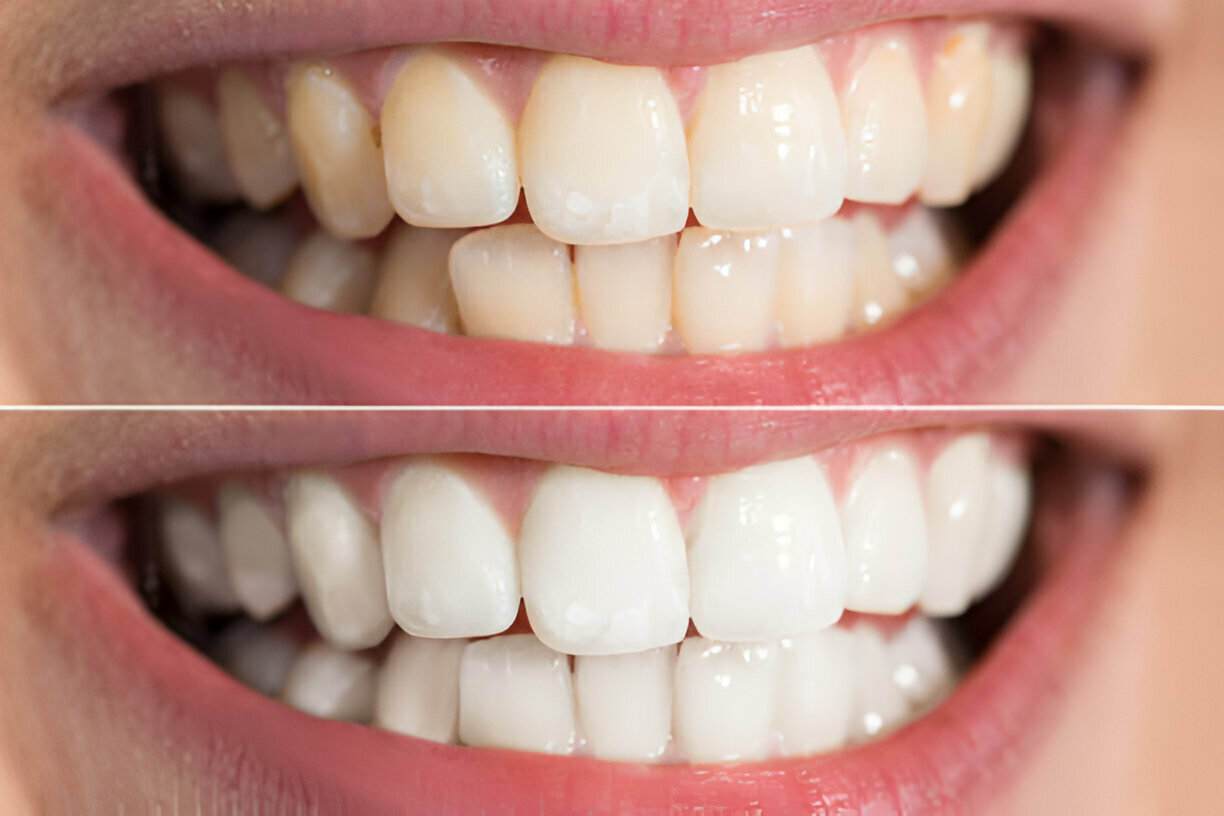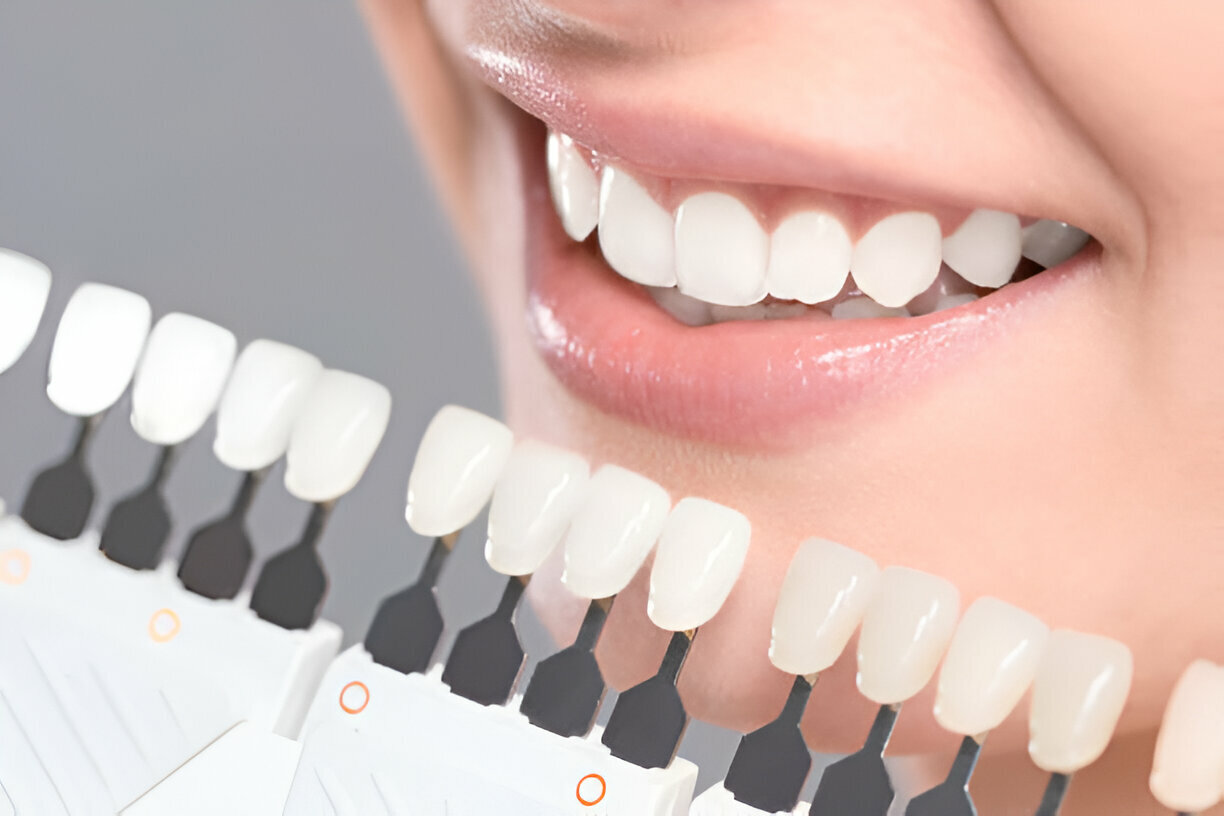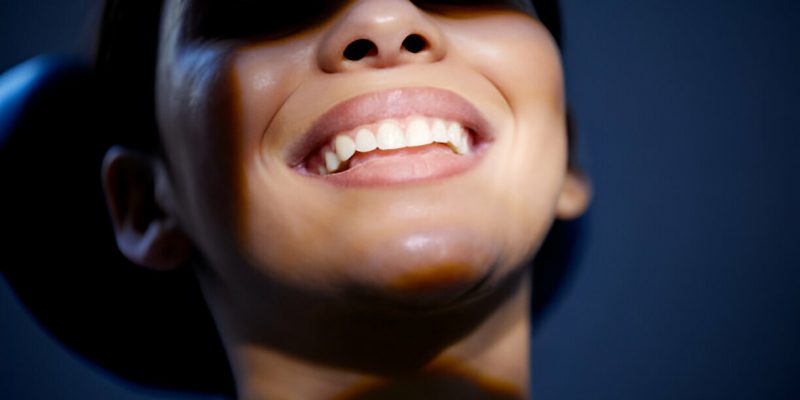Summary
When it comes to your smile, almost everybody wants to use what’s best for it.
You pick from the best toothpaste, floss, and mouthwash to get a radiant, whitened smile.
Sadly, however, most individuals fail to get a brighter smile despite following the best oral practices. This is mostly because over 86% of Americans don’t include teeth whitening products in their daily oral regimen.

Teeth whitening products are your best bet for an effective smile. Sadly, however, the plethora of options tends to confuse users about whether to choose professional or at-home kits.
Therefore, in this blog, we take a closer look at the difference between both whitening methods in detail via topics like:
- Why Go For Teeth Whitening?
- Common Causes of Tooth Discoloration
- Professional Teeth Whitening – Explained!
- Professional Teeth Whitening Vs. At-Home Teeth Whitening – Differences Listed
- Does Teeth Whitening Work on All Types of Teeth?
So continue reading as we learn more in the following sections.
Why Go For Teeth Whitening?
If you have stained, dull, or yellow teeth, you may feel underconfident and hide your smile. Using whitening solutions makes it easy to regain that confidence.
These whitening products are easy! It involves applying bleaching treatments to your teeth. Bleach targets the brightly pigmented organic compounds that lodge between the dentin or tooth enamel (the tooth’s outermost coating). These organic particles are what give the teeth their discolored look.
However, you may use teeth-whitening products to quickly restore your teeth’s sparkling white color. These products are designed to enhance your teeth’s color by two to three shades.
Common Causes of Tooth Discoloration
- Foods/drinks: Sodas, coffee, wine, and tea are the most common, besides citrus and acidic dishes.
- Poor Dental Hygiene: Poor dental habits contribute significantly to tooth discoloration. Brushing, flossing, and getting regular dental exams will always help keep teeth healthy and clean.
- Tobacco: Smoking is known to cause significant tooth discoloration. Consuming different tobacco products will lead to teeth discoloration over time.
- Natural Aging Process: Everyone gets old, and so do your teeth. It’s natural for the protective enamel coating on your teeth to wear off over time. Everyday wear and tear on your teeth will eventually cause it to fade.
- Medications: Certain drugs, including doxycycline and tetracycline, might cause teeth to discolor. Antihistamines, antipsychotic medicines, and several high blood pressure medications have also been shown to discolor teeth in adults. It is advisable to discuss the possible side effects of any drugs you are presently taking with your doctor.
Other lesser-known causes of tooth darkening may occur early in life. Children exposed to too much fluoride often acquire inherent stains inside their teeth.
Different Teeth Whitening Procedures for Your Smile
Numerous tooth whitening options are available, some being more effective than others. At-home systems only employ 10-20% carbamide peroxide gels with other components such as glycerin, water, sodium hydroxide, carbomer, and flavorings. Some at-home treatments with more than 10% carbamide peroxide may include sodium fluoride to strengthen the teeth and minimize sensitivity.
Your options include:
- Whitening rinses: They are easy to use. Just swirl it around on your tongue for a minute. The whitening chemical in the product touches your teeth briefly, causing your choppers to brighten progressively. This also helps prevent fresh stains.
- Whitening toothpaste: These toothpaste contain ingredients that, on gentle brushing, may erase surface stains and gradually increase brightness. Nevertheless, after using these products, some people report having sensitive teeth.
- Gel strips: You usually apply them to your teeth once a day for up to two hours. Depending on the product’s strength, you may need to wear it for 10 to 20 days.
- Whitening trays: These include a gel that you apply to your teeth. They might whiten your choppers in no time. Nevertheless, the trays with at-home kits are more likely to rub and irritate your gums since they are not custom-made. Make sure you adhere to the box instructions correctly.
Professional Teeth Whitening – Explained!
If you get professional whitening done at your dentist, the first thing they do is take imprints of your teeth. These are used to make stints or trays just for you. A proper fit to your teeth helps produce the most significant potential result, and the trays may be ready in a few days.

Professionals for teeth whitening in Columbia will provide you with bleaching chemicals to put in the trays, progressively brightening and whitening your teeth over the following two weeks. We recommend wearing the trays every night for 3-4 hours. The trays are clear and inconspicuous, and most patients believe they are unnoticed by others.
Once the treatment is completed and your desired brightness has been attained, we will offer you more bleaching chemicals for regular use, to maintain the whiteness of your teeth.
Professional Teeth Whitening Vs. At-Home Teeth Whitening – Differences Listed
There are numerous significant distinctions between at-home and professional teeth whitening, but the optimal course of action depends on your desired outcomes and general oral health.
Time
At the dentist’s office, you may spend 1-2 hours but leave with teeth that are eight shades brighter. However, at home, you may need to spend 1-2 hours every day over days or weeks to whiten your teeth by 3-6 shades.
Cost
While at-home kits typically cost approximately $50, teeth whitening with a dentist professional will cost more. The primary advantage of professional teeth whitening is that it occurs far faster than the kits necessary to accomplish and maintain whitening with at-home treatments. At-home kits may have varied outcomes, depending on your teeth and general dental condition.
Longevity
In-clinic whitening can provide whiter teeth for a longer period than at-home whitening procedures because the concentration of the solution allows for deeper penetration of the tooth surface.

Does Teeth Whitening Work on All Types of Teeth?
Unfortunately, whitening does not work for every kind of tooth! As a result, consulting with your dentists in West Columbia, SC, is essential to determining the best method for your teeth. Certain whiteners might not wholly remove specific stains and discolorations. For instance, teeth that are yellowed often bleach rather well, whereas teeth that are brown or gray may not bleach at all.
Furthermore, whitening does not work on dental appliances such as caps, veneers, crowns, or fillings. Bleaching your teeth is unlikely to make any difference if the underlying cause of discoloration is medicine or trauma.
Takeaway
- If you have stained, dull, or yellow teeth, you may feel underconfident and hide your smile.
- Whitening your teeth at home and the dentist’s office does not guarantee equivalent results, besides significant differences in time, cost, and longevity.
- If you get professional whitening done in our office, we first take imprints of your teeth.
- Don’t let any apprehension stop you from getting the ideal teeth whitening treatment! Visit our experts at Carolina Smiles Family Dentistry today.

